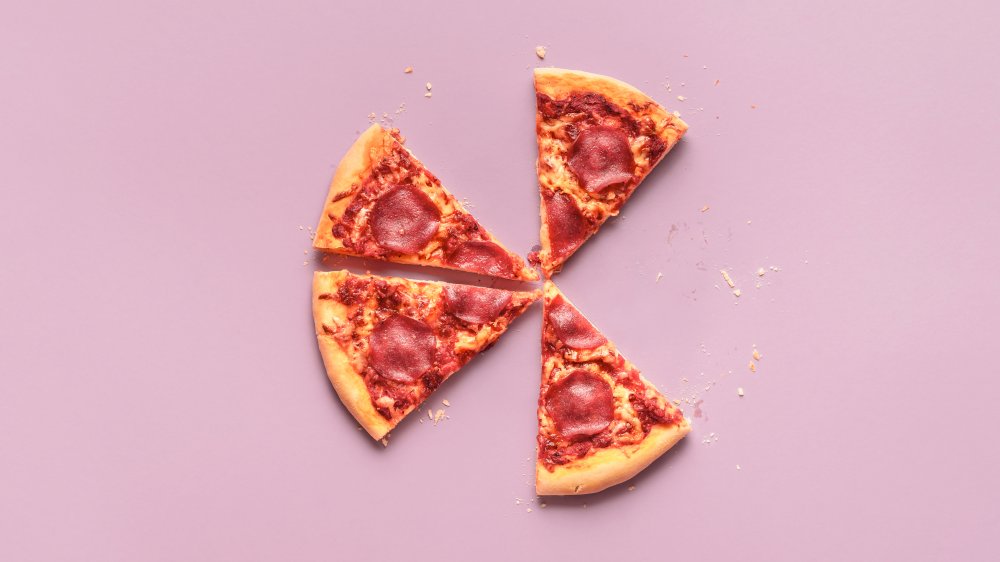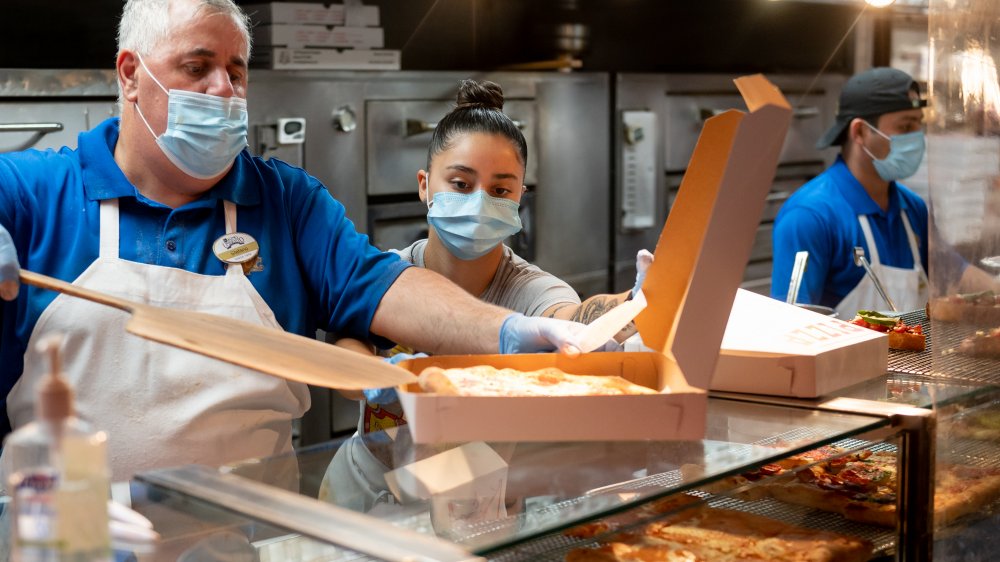What The Pepperoni Shortage Means For Your Next Pizza Order
Throughout the ongoing coronavirus pandemic, Americans have leaned heavily on comfort food. Can you blame them? COVID-19 has plunged the country into a recession. Busy parents want a fast, easy way to keep families fed and satisfied. And, during a historically unprecedented time, let's face it — a hot dog or a slice of pizza is, simply, comforting and dependable. The reasons behind the spike in pizza sales aren't just based on a craving for carbs — pizza has already been established as a delivery business, which made it far easier for people to make the decision to order it, according to Business Insider.
But while the coronavirus has led to soaring pizza sales, it's also brought on a barrage of shortages, like the nationwide flour shortage that puzzled home bakers everywhere. Now, America's beloved and greasy pizza topping is headed in the same direction. According to Bloomberg, pepperoni prices have spiked — up to 50 percent in some cases.
The big chains, like Domino's and Pizza Hut, aren't experiencing much pain from the shortage. Larger pizza chains, according to Bloomberg, tend to hold long-term contracts with supplies that protect the companies from any drastic price change. But smaller businesses, such as your favorite mom-and-pop pizza joint, are likely hurting a lot more. Does this mean America's favorite pizza topping will start disappearing from pies? Well, certainly not yet.
A rift in the pizza supply chain
From South Dakota to New York, small-scale pizzerias are forking over more money for pepperoni, according to Bloomberg's report. At Emily, a pizza shop with locations in Brooklyn and the West Village, owners have shifted from paying $4 a pound to $6 — all in a matter of months.
The spike in prices has several causes. It's not simply that more Americans are ordering pepperoni pizza. It's also a sign of a precarious supply chain. According to food service consultant Barry Friends, pork processors are "not doing as much because they don't have the people to do the work."
Over the last few months, meat plants have served as a hotbed for the coronavirus. By June 12, ProPublica found that at least 24,000 COVID-19 cases were connected with meat packing plants. In one Iowa plant — a pork plant owned by Tyson — more than 1,000 workers contracted the coronavirus. Across the country, employees at multiple plants have alleged that despite social distancing recommendations, they've still been working shoulder-to-shoulder (via MPR). The outbreaks led to shutdowns, according to CNBC.
Despite the rise in prices, local pizza shops don't necessarily plan on raising prices for customers themselves. Matthew Hyland, co-owner and chef of Emily, valiantly told Bloomberg that "it's important to us that we keep [pepperoni] accessible."

